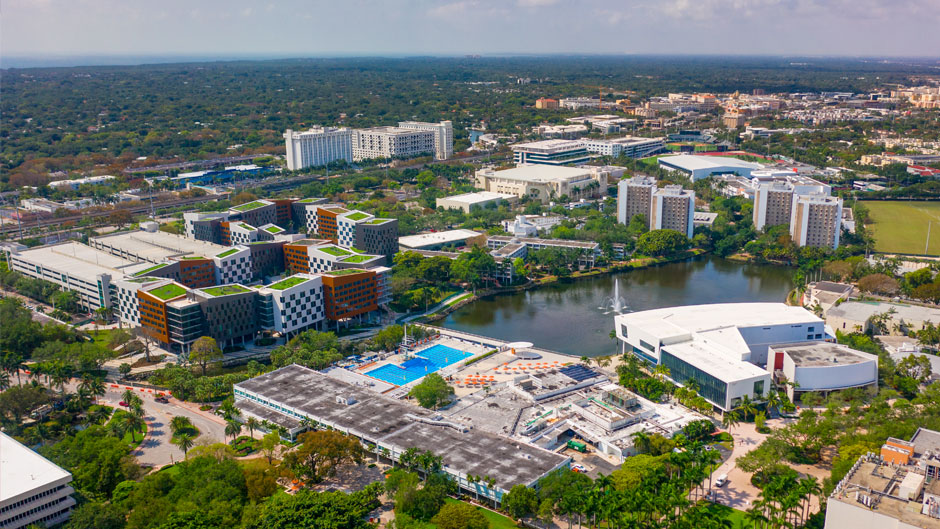
The City of Coral Gables will present the University with a Platinum Green Business Certification at a City Commission meeting later this month.
On Sept. 28, the University of Miami will be awarded the Platinum Green Business Certification by the City of Coral Gables. The University is the first—and so far, the only—business in Coral Gables to earn platinum-level recognition.
“It is such an honor for UM to be receiving this recognition as the first platinum level Green Business within Coral Gables,” said Jessica Brumley, vice president for the Department of Facilities Operations and Planning. “It means so much to receive this award from the City of Coral Gables, who holds themselves to an extremely high standard when it comes to sustainability initiatives and has received multiple awards themselves.”
The Coral Gables Green Business Certification Program began in 2019 as a collaboration between the Coral Gables Chamber of Commerce and the city’s Sustainability Advisory Board.
Businesses in Coral Gables are assessed according to their solid waste reduction, recycling, energy conservation, water conservation, pollution prevention, transportation alternatives, and general environmental policy and education. Businesses are then ranked on four levels: bronze, silver, gold, and platinum.
“We created this program to help recognize our businesses for all the great work they’re doing and to educate them on additional initiatives they can take within their businesses to be more environmentally sustainable,” said Matthew Anderson, senior sustainability analyst for Coral Gables, in a video on the city’s website.
Teddy L’Houtellier, sustainability manager in the University’s Office of Sustainability, said that a combination of sustainability efforts made during the past decade is what set the University of Miami up to achieve platinum.
In 2007, the University signed the Presidents’ Climate Leadership Commitment from Second Nature, the climate education leader in American higher education.
That promise included reducing carbon emissions 20 percent by 2020. And to make that happen, according to L’Houtellier, the University vowed that all new buildings across its campuses would receive a minimum of a silver LEED certification from the U.S. Green Building Council—a designation indicating that buildings mitigate their impacts on the surrounding environment.
Last year, the University did in fact meet its 20 percent reduction goal. And today, L’Houtellier noted, many campus buildings have surpassed that silver designation.
“In recent years, most of our buildings are reaching gold LEED certifications,” he said. “The buildings are not only using less energy, less water, and less waste, but also using recycled salvaged materials. So, it’s a more comprehensive approach to green building.”
The Patricia Louise Frost Music Studios building, for example, has a platinum LEED certification because of features like its rooftop photovoltaic solar panels, electrochromic windows, and a rainwater harvesting system.
There are more sustainable initiatives still to come for the University.
The University is currently gathering data on the Coral Gables and Marine campuses to help create a new sustainability action plan for 2025, L’Houtellier pointed out.
In August, the University began a transition to use of solar energy as a part of Florida Power & Light’s SolarTogether program. The initiative is leading the University to eventually use 100 percent renewable energy. And this will make it one of the largest higher education institutions in Florida to harness solar energy to power nearly all of its campuses.
You can watch the award presentation at the City Commission meeting on Tuesday, Sept. 28, at 4 p.m.
from WordPress https://ift.tt/2Z4vEET
via IFTTT

No comments:
Post a Comment